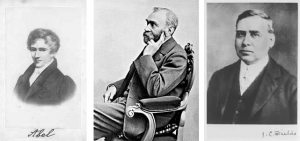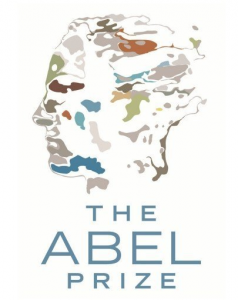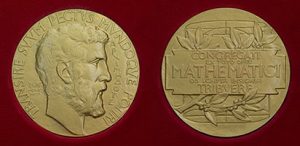The recent award of the Abel prize to Yves Meyer, for his crucial role in the development of the mathematical theory of wavelets, brings back to the fore the periodic debate on the ‘mathematics Nobel prize’.
In 2009, 2010, 2015, 2016 and 2017, the headlines of El País, in order to show an example of a medium distinguished by its contribution to scientific dissemination, announced the annual awarding of the ‘mathematics Nobel’ and the words ‘Abel prize’ only appeared in the body of the news item. Thus, “A chance discovery in a photocopier culminates in the ‘Nobel’ of mathematics” in 2017 and “600,000 euros for solving a riddle scribbled in a book in 1637. Mathematician Andrew Wiles wins ‘Nobel’ for proving Fermat’s last theorem” in 2016. Interestingly, in 2011, 2012 and 2103, El País did use the words “Abel prize” in its headlines (I have not been able to confirm that it gave the news in 2014).
Something similar happens when the Fields medals are awarded every fourth year: “Mathematicians present their ‘Nobel’ prizes in Madrid” in 2006, “‘Nobel’ in mathematics for calculating the speed of disorder and the flow of water” in 2010, or “For the first time in history, a woman wins the Fields Medal in Mathematics. Iranian Maryam Mirzakhani, 37, receives what is considered the Nobel Prize in these sciences” in 2014.

Why this insistence that the Abel Prize or the Fields Medal be, alternatively, considered the ‘Nobel’ of mathematics? Because there is no Nobel Prize for the field of mathematics and, given that the Nobel Prize is, by far, the best-known international award, a similar prize in any field that is not on the Nobel list ends up being considered “the ‘Nobel’ of…”, as is the case with mathematics, architecture (the Pritzker), education (the Global Teacher) or philosophy (the Kluge).
Well, accepting that the scientifically curious public understands much better what it means if someone gets the ‘Nobel’ prize for mathematics rather than the Fields Medal or the Abel Prize, which of these two should really be considered as such? the Abel Prize because of the phonetic consonance, because it is given in Norway, like the Nobel Prize for Peace? The Fields Medal because it is older and has already earned that position?
Let’s see since when, and what is awarded in each case (underlining is mine).
 The Nobel Prizes have been awarded annually since 1901: “The whole of the remainder of my fortune shall be disposed of as follows: the capital, invested in safe securities by my executors, shall constitute a fund whose interest shall be distributed each year in the form of prizes among those who during the preceding year have done the greatest good to mankind. The said interest shall be divided into five equal parts, which shall be distributed as follows: one share to the person who has made the most important discovery or invention in the field of physics; one share to the person who has made the most important discovery or improvement in chemistry; one share to the person who has made the most important discovery in the field of physiology or medicine; a share to the person who has produced the most outstanding work of an idealistic tendency within the field of literature, and a share to the person who has worked most or best for fraternity among nations, for the abolition or reduction of existing armies and for the holding and promotion of peace congresses.” (Excerpt from Alfred Nobel’s will, Nobel Foundation; figure: obverse and reverse of the medal awarded to John F. Nash, Sotheby’s).
The Nobel Prizes have been awarded annually since 1901: “The whole of the remainder of my fortune shall be disposed of as follows: the capital, invested in safe securities by my executors, shall constitute a fund whose interest shall be distributed each year in the form of prizes among those who during the preceding year have done the greatest good to mankind. The said interest shall be divided into five equal parts, which shall be distributed as follows: one share to the person who has made the most important discovery or invention in the field of physics; one share to the person who has made the most important discovery or improvement in chemistry; one share to the person who has made the most important discovery in the field of physiology or medicine; a share to the person who has produced the most outstanding work of an idealistic tendency within the field of literature, and a share to the person who has worked most or best for fraternity among nations, for the abolition or reduction of existing armies and for the holding and promotion of peace congresses.” (Excerpt from Alfred Nobel’s will, Nobel Foundation; figure: obverse and reverse of the medal awarded to John F. Nash, Sotheby’s).
Since Nobel had omitted the field of mathematics in his will, the Norwegian mathematician Sophus Lie proposed, shortly before his death in 1899, to establish a mathematics prize to be awarded in 1902, on the occasion of the first centenary of the birth of Niels Henrik Abel. It was to be financed by King Oskar II, who had already financed a prize in 1889 for the best paper on the problem of gravitational attraction between an arbitrary number of bodies, which was awarded to Henri Poincaré’s work on the three-body problem. The fading of Lie’s influence at his death, and the separation of Norway and Sweden in 1905 put an end to this first attempt to establish an Abel prize. The idea was successfully revived in 2002, and the Abel Prize has been awarded annually since 2003 to “recognise contributions of extraordinary depth and influence in the mathematical sciences. Such work must have solved fundamental problems, created powerful new techniques, introduced unifying principles or opened up new fields of research. The purpose is to reward extensive contributions over time in a broad field of the mathematical sciences”. (History of the Abel Prize and Nomination Guidelines of the Abel Prize, The Norwegian Academy of Science and Letters).
 The Fields Medal, originally the International Medal for Outstanding Discoveries in Mathematics, has been awarded every four years since 1936, on the occasion of the International Congress of Mathematicians, to “recognise outstanding mathematical achievement in work already done and the promise of future achievement (…) Candidates must be 40 years old before 1 January of the year in which the congress at which the medal is awarded is held.“ (Fields Medal Details, International Mathematical Union).
The Fields Medal, originally the International Medal for Outstanding Discoveries in Mathematics, has been awarded every four years since 1936, on the occasion of the International Congress of Mathematicians, to “recognise outstanding mathematical achievement in work already done and the promise of future achievement (…) Candidates must be 40 years old before 1 January of the year in which the congress at which the medal is awarded is held.“ (Fields Medal Details, International Mathematical Union).
We note that the Nobel Prize was conceived for achievements in the year before it was awarded and it is true that, except perhaps in the case of the Nobel Prize for Literature, prizes are awarded for a major contribution rather than for a lifetime’s work. However, Nobel Prizes have long been awarded for achievements well before the previous year. Apart from their annual nature, in this respect they are more similar to the Abel Prize than to the Fields Medal. The ages of the laureates are also similar to the Scandinavian prizes: of the 911 Nobel laureates, only 44 (Marie Curie, Ernest Rutherford, Niels Bohr and Martin Luther King Jr. among them) were awarded the Nobel Prize when they were under the age of 40. Of the 18 Abel laureates, the youngest recipient was Andrew Wiles, aged 63.
In short, the Abel Prize shares some characteristics with the Nobel Prize – not only their phonetic proximity, their annual nature and the fact that they are awarded by Scandinavian scientific institutions – but also in terms of what is awarded and the age of the prize-winners, which suggest, in my opinion, that the Abel Prize should be the one to be considered the ‘Nobel’ prize for Mathematics.
And, all in all, the Fields Medal is a prize that gives a singular character to mathematics among all the sciences; it is we mathematicians who, through the International Mathematical Union, award the prize to one, –finally to a woman in 2014!–, of our young people so that it will be easier for them to continue doing wonders in the future; in fact, of the 18 Abel prizes, 5 of them had received the Fields Medal: Jean-Pierre Serre, Michael Atiyah, John Griggs Thompson, John Milnor and Pierre Deligne.
Let’s stop considering the Fields Medal as the ‘Nobel’ for mathematics; let’s export to other disciplines the making their own ‘Fields’.

Leave a Reply